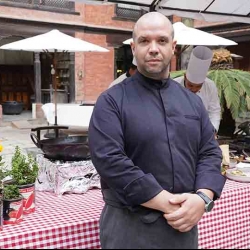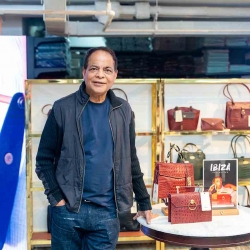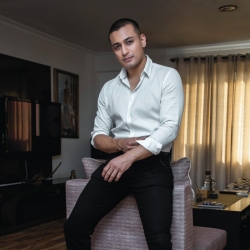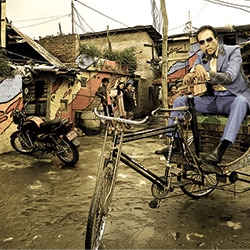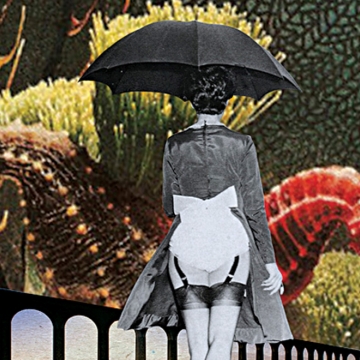Rabindra Bhakta Shrestha
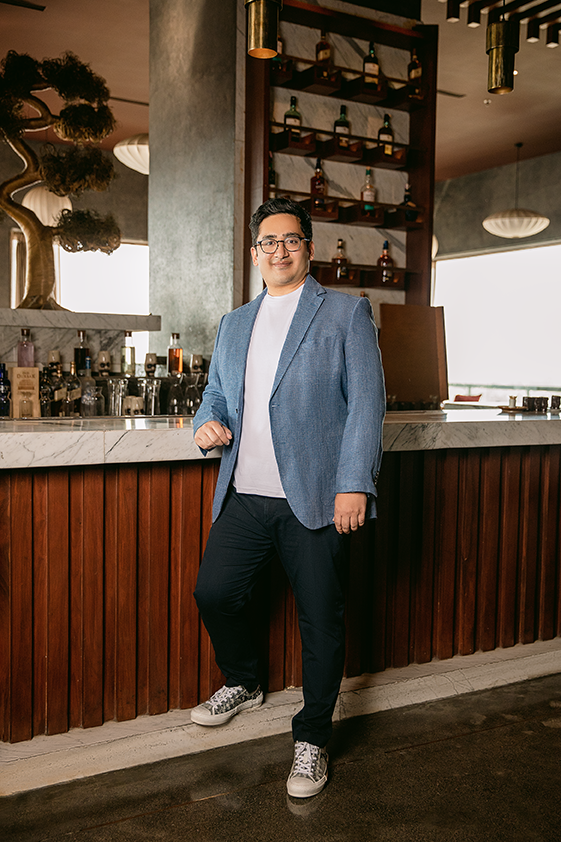
Rabindra Bhakta Shrestha is the Managing Director of I.J. Group- a third generation diversified business conglomerate. He reflects on the Group’s foray into the hospitality segment as well as the opportunities and challenges of building businesses in Nepal. He talks about his plans for the future and his unique vision having returned to Nepal after completing his Bachelors from Stanford University and his MBA from Wharton Business School.
How would you describe the IJ Group?
I would describe us as long-term builders who pursue business with community and ethics in mind. We are quite diversified in our industries and mostly work in a partnership model. As the saying goes " If you wanna go fast go alone, if you wanna go far, go together”, the group respects the principle of working together with its numerous partners to sustain and maintain long term growth.
In your opinion, how has the business landscape evolved across generations?
Times are certainly changing at a rapid pace. Compared to the era of our fathers and grandfathers, today's landscape is almost unrecognizable. Whereas they faced challenges in building a business from scratch, once established, it was relatively easy to sustain, given the virgin market. Today, the opposite is often true. Setting up a business can be done with ease, but with fierce competition and rapid technological changes, sustaining success over time is a greater challenge. In the past, entrepreneurship was about taking unforeseen risks and diving headfirst into a vision, but our generation tends to be more analytical, taking calculated risks to achieve success.
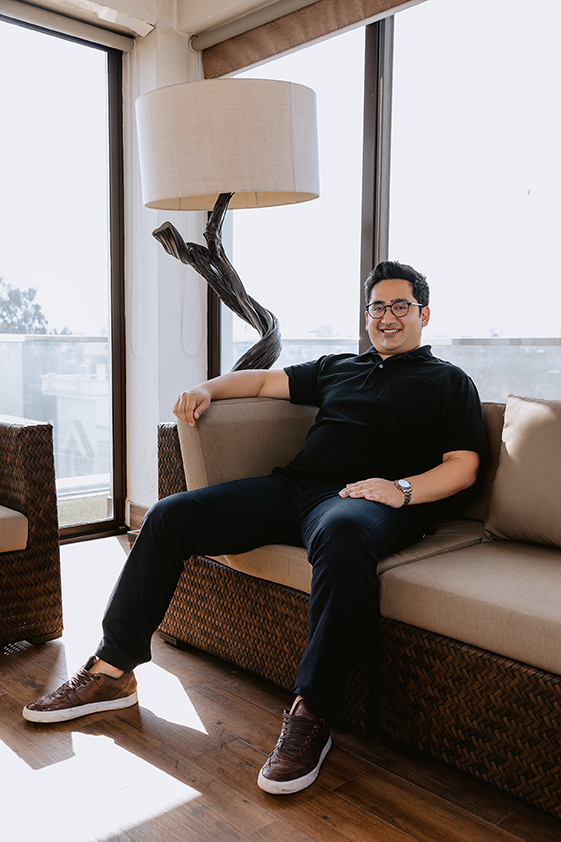
What exciting changes have taken place in the company since you joined, and what's next for I.J. Group?
Since I joined the company, we've worked hard to expand our core team, streamlining our operations and improving our reporting systems. This might sound mundane, but it's allowed us to pursue our vision with greater focus and effectiveness. And I would say it's paying off: we've expanded our investments into the hospitality sector, acquiring stakes in Soaltee Hotel Limited and Summit Hotel, and developing properties like the Soaltee Westend in Nepalgunj and Vivanta Hotel in Jhamsikhel. We're also currently developing two groundbreaking mixed-use real estate projects that we believe will take the industry to new heights. And to celebrate our 50th anniversary, we've rebranded ourselves as the I.J. Group, in honor of our founder and to better align all of our charitable, social, and professional entities under one name.
What do you find most interesting about the hotel business?
Hotels are fascinating in many ways. One of the things that set them apart is the fact that it's an around-the-clock operation, 365 days a year. The customer is always in close contact and everything needs to be dealt with immediately. This is quite different from our group's manufacturing background, where there was often some buffer time to fix any problems. Also, while hotels are commercial endeavors, they are also living and breathing community spaces- a microcosm of different people and stories all under one roof.
Which is your favorite hotel in the world?
Choosing just one favorite hotel is a tough ask, as so much of what makes a hotel special is the memories and experiences that come with it. But If I had to choose one, it would be the Song Saa resort in Cambodia. We were lucky enough to be hosted by the owner who is good friends with my wife. It was truly a serene experience, and the staff went above board to make it special.
How do you see Airbnb and similar businesses affecting the hotel industry?
To be honest, these days I don't see Airbnb as much of a direct competition to the hotel business as I once did. The product and experiences are totally different. When you book a hotel, you are assured of a certain standard and can expect typical services according to the star rating of the property. For example: If you don’t like your room, you can request a change based on availability. There are certain conveniences at hotels that don’t exist at Airbnb. Having said that, Airbnb products are changing and some are providing hotel-like services. Renting an Airbnb has its own charm and I prefer it when traveling with a group of friends or my larger family as there is more common space to congregate around. Airbnbs likely directly affect the residential real estate market rather than hotels, as they thrive on higher rates that can make it more expensive for locals to rent as residences.
Where do you see the hotel industry going in Nepal?
Currently, the industry has bounced back a bit after the pandemic and travel restrictions but we have clearly not recovered entirely. I would estimate we are 60% of the way back to pre-Covid days. We are seeing a lot of new properties being developed in Kathmandu and beyond. Several international brands have also entered Nepal which is great for the maturity of the industry. But at the same time, the infrastructure of Nepal has not improved in tandem. Our airports are still lagging behind the rest of the region which is a major problem. I would also like Nepal as a destination to be marketed better internationally. With all of our rich natural and cultural beauty we should easily have five times more annual tourist arrivals from the current record of 1.2 million. However, the focus should also shift towards high-quality tourists over just numbers. Tourism as an industry has a lot of ripple effects on the rest of the country’s economy, so it should be given the highest priority by policymakers.
How do you apply environmental sustainability in business?
In all of our businesses, we’ve made it a priority to orient our company towards more environmentally friendly practices. Take, for example, the Soaltee Westend Hotel which is one of the first LEED Certified Hotels in Nepal. We invested heavily into a circular energy management system for our water and air temperature. Our plant processes organic waste from the property into fertilizer to distribute to local farmers. This not only reduces our carbon footprint but we make sure whatever waste that goes out of the property is clean and minimized as far as possible. We're also committed to reducing plastic waste. For example, with Unilever Nepal leading the way as perhaps the first net-neutral plastic company in Nepal. Now, by no means are we all the way there in terms of where we need to be, but I’m proud to say that we're making real progress.
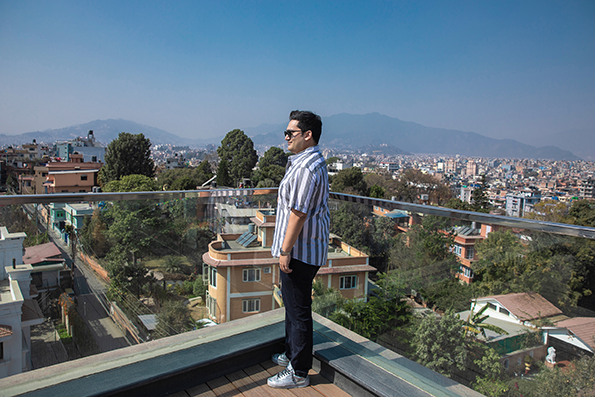
What would you highlight as some of the challenges in your work experience?
My work experience has had its fair share of challenges, particularly when it comes to adjusting to the work culture here in Nepal, having spent a significant amount of my time abroad. It was definitely a major hurdle to overcome. However, I am fortunate to have had amazing mentors who provided guidance and support, helping me to navigate the transition and establish a strong foothold here. The pandemic was another major challenge which quite frankly businesses especially hospitality are still reeling from. It forced us to adapt quickly to a new harsher environment. I would like to think we emerged as a stronger group.
A lesson that you have learnt from your father that has helped you?
It might sound cliched, but one lesson that I learned from my father is the importance of ethics and trustworthiness in business.Throughout his career, he has always displayed these qualities even if meant giving up short-term profits. I believe this played a key role in his success. I try to emulate the same qualities.
Growing up in a business family, were you always drawn towards business?
Clearly, growing up in a family business undoubtedly exposed me to a world of commerce from a young age. I have fond memories of accompanying my grandfather and father to their workplaces just to observe the activities in the office. Of course, it shapes your mind growing up and I really didn’t imagine doing anything else. I looked up a great deal to my late grandfather and now my father in many ways.
What is your vision for I.J.Group in the future?
I want us to keep growing; have the professionalism of a large corporation without losing the human touch of a family business. I plan to invest more on our people and make the group a place where the brightest talents want to work. Ultimately, I want to put the organization on a stronger footing for the future, as at the end of the day, I am just a custodian for the business for the next generation.
Name three qualities a businessman should have?
I would highlight three on the top of my list as having non-negotiable ethics, a clear vision and persistence.
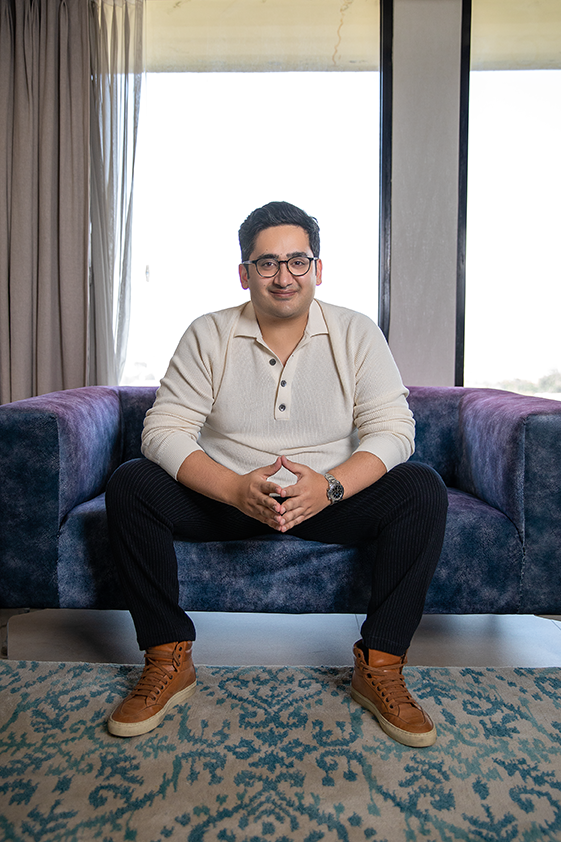
Recently you became a father, how has this experience changed you and how do you manage to juggle work and family life?
Being a father is unlike anything I have experienced before. It has given me a greater sense of purpose and a deeper appreciation for time spent with family. I prioritize my responsibilities more clearly and draw a firm line with what takes up my time. Each person has to figure out the right balance for what works for them. It isn’t easy and it took some adjustments at work to ensure I am a present and engaged father at home, but it needed to be done and I am glad I did.
How do you spend your time outside of work?
To unwind from work, I prioritize spending quality time with my family, mostly my wife and son. It's important to disconnect from work and be present in the moment with my loved ones. We love to create memories exploring the world together through travel. On a day to day basis, I enjoy exploring new restaurants in town with my family or unwinding after a long day by watching TV shows or movies together with my wife. During the lockdown, my wife and I rewatched the entire Game of Thrones series, which was a great way to pass the time and escape into a different world. Overall, I try to keep my time off work low-key and relaxed.
Are you much of a sports fan?
I watch football avidly and am a fan of FC Barcelona. When I was young we went on a family trip to Europe and my father spontaneously took me to an FC Barcelona game where we admittedly got tricked by a ticket scalper to purchase the worst seats in the stadium! Still, it didn’t ruin my excitement one bit and its one of my most cherished memories. I got the chance to watch another Barcelona match recently on my bachelor trip and thankfully we actually got decent seats! I hope to take my son to a game just like my father did!
You have quite the collection of liquor here, especially tequila; can you tell us a bit about that?
These are mostly just for collection, as I drink only on certain occasions. I do enjoy sipping tequila every once in a while- probably my favorites would be the Codigo 1530 Extra Anejo. Tequila is often misunderstood and underestimated as people have bad first experiences with Tequila from their youth. But I’ve been on a small mission to change people’s minds on tequila and I think some have changed their minds!
Any places in your travels that have inspired you?
I’ve found inspiration in all corners of the globe but if I had to pick one it would be my visit to Japan. I found that the Japanese people have a relentless dedication to perfect their craft in whatever they do.It was truly eye-opening. For example, I had the privilege of visiting a ramen house that had been perfecting their craft on that one dish for generations, and the attention to detail was quite incredible. It made me reflect on myself a bit-both about the need to build a particular expertise over being a jack-of-all-trades and continuously working to improve oneself.
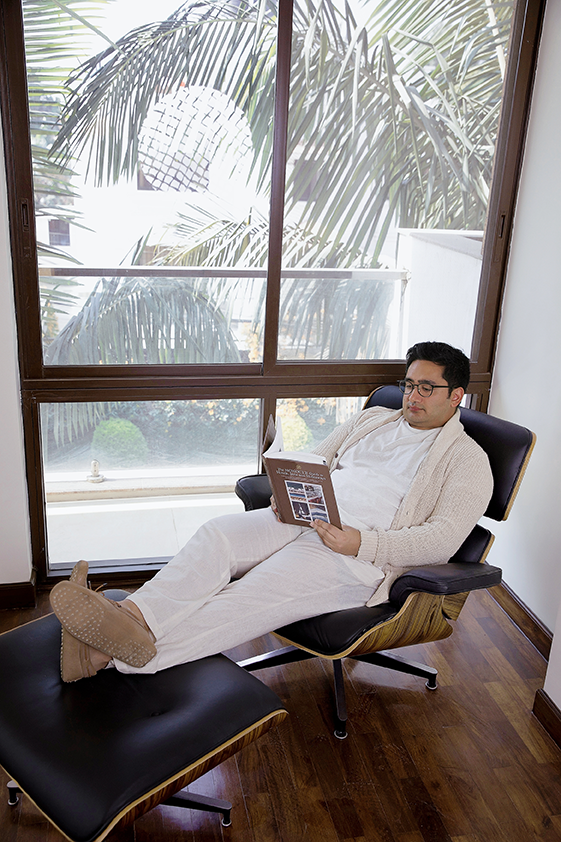
What’s your take on traveling?
When I travel, I usually skip the sightseeing and the usual bucket list items. I prefer to go to a city and to get a feel for the life of a local as much as possible-how people pass their time and see where they hang out or even go to a house party. Hence, I like to go places I am connected to a local and let them show me around. The lives of the people are what fascinate me more than the place.
What are some of your favorite books?
I would like to mention two, Shantaram which is a semi-biographical novel that in its essence explores the complexities of human relationships. The second would be The Catcher in the Rye, a classic about the loss of innocence coming to terms with the realities of the world. Both books made an impression on me growing up.
Any excerpts from a book that you found very interesting?
There is a quote in Shantaram which I found particularly intriguing: “Fate gives all of us three teachers, three friends, three enemies, and three great loves in our lives. But these twelve are always disguised, and we can never know which one is which until we’ve loved them, left them, or fought them.”




